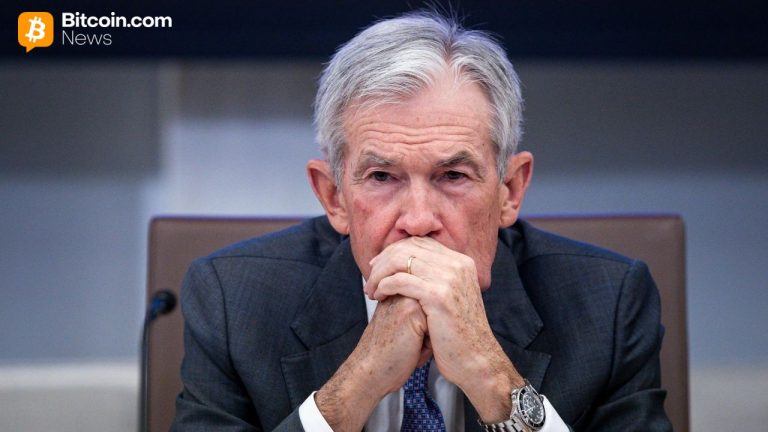JPMorgan: 72% of Institutional Traders Surveyed ‘Have No Plans to Trade Crypto’ – Featured Bitcoin News
3 min read
A new survey by JPMorgan Chase shows that 72% of institutional traders “have no plans to trade crypto” while 14% plan to trade cryptocurrencies within five years. Institutional traders also expect “recession risk” to have the biggest impact on markets in 2023.
JPMorgan’s Institutional Trader Survey
Global investment bank JPMorgan Chase published the results of its annual “e-Trading Edit” survey on Thursday. Conducted in January, the survey provides “insight into predictions for the year ahead,” the bank said, adding that 835 institutional traders in 60 global locations participated in the survey.
The survey asked institutional traders about their plans to invest in cryptocurrencies. JPMorgan detailed:
72% of traders surveyed ‘have no plans to trade crypto/digital coin,’ with 14% predicting they’re not currently trading but plan to trade within 5 years. 8% are currently trading and 6% are not currently, but plan on within 1 year.
Furthermore, institutional traders predicted that cryptocurrencies and digital coins will “have the biggest increases in electronic trading volumes over the next year.” In addition, “100% of responding traders predicted they will increase electronic trading activity,” JPMorgan noted.
Institutional Traders on Recession and Inflation
The survey also asked institutional traders about their economic outlook. “Traders predict that ‘recession risk’ will have the biggest impact on markets in 2023, closely followed by ‘inflation’ and ‘geopolitical conflict,’” JPMorgan explained, elaborating:
For traders that predicted ‘inflation’ to have an impact on markets, we asked them ‘What is your outlook for the impact of inflation when pricing it in for 2023?,’ with 44% of traders predicting inflation will decrease.
Moreover, “58% of traders surveyed based in the United States expect U.S. inflation levels to level off and 41% of traders surveyed based in the United Kingdom predict inflation to decrease,” JPMorgan described.
While most of the institutional traders surveyed by JPMorgan do not plan to invest in crypto, several other surveys show stronger institutional interest in the asset class. A survey by asset management firm Devere Group found that 82% of millionaires have asked their financial advisors about adding cryptocurrencies, including bitcoin, to their portfolios. A different survey by Nickel Digital Asset Management found that institutional investors expect “a strong year ahead for bitcoin” and 65% agree that BTC could reach $100,000. Last month, global investment bank Goldman Sachs ranked bitcoin the best-performing asset this year.
What do you think about this JPMorgan survey? Let us know in the comments section below.
Image Credits: Shutterstock, Pixabay, Wiki Commons
Disclaimer: This article is for informational purposes only. It is not a direct offer or solicitation of an offer to buy or sell, or a recommendation or endorsement of any products, services, or companies. Bitcoin.com does not provide investment, tax, legal, or accounting advice. Neither the company nor the author is responsible, directly or indirectly, for any damage or loss caused or alleged to be caused by or in connection with the use of or reliance on any content, goods or services mentioned in this article.
Read disclaimer





